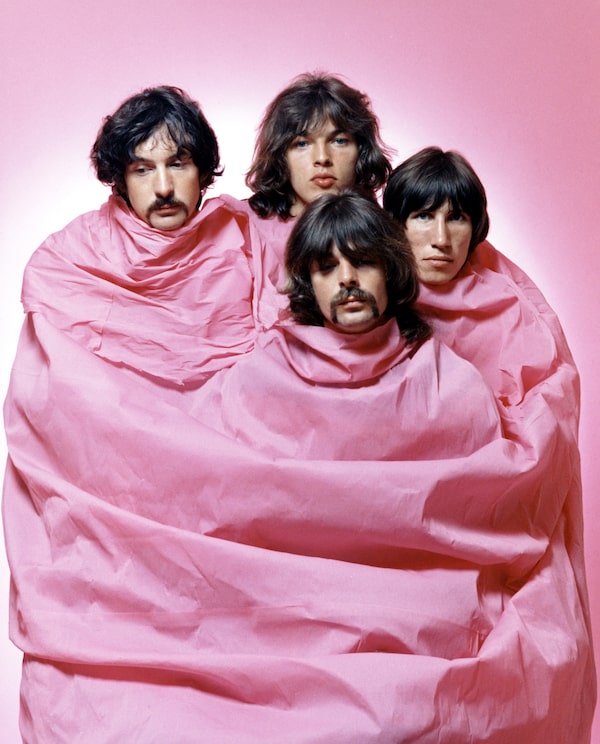Good morning,
A group of top scientists concerned about the weakening of the federal pandemic early warning system in the years before COVID-19 emerged have proposed relocating the operation to a university where it can work independently of government.
The proposal is aimed at restoring the Global Public Health Intelligence Network to its former status as an internationally respected pandemic surveillance system. Documents outlining the plan were submitted to an independent panel in Ottawa that is reviewing the system’s future.
According to the documents, GPHIN would work with the World Health Organization and be based at the University of Ottawa’s Bruyère Research Institute. The university and the WHO back the idea, says the proposal, which was reviewed by The Globe and Mail.
Nurses and doctors from Humber River Hospital ride an elevator as they prepare to administer the Moderna COVID-19 vaccine at a Toronto Community Housing seniors building in the northwest end of Toronto on March 25, 2021.CARLOS OSORIO/Reuters
This is the daily Morning Update newsletter. If you’re reading this on the web, or it was forwarded to you from someone else, you can sign up for Morning Update and more than 20 more Globe newsletters on our newsletter signup page.
Only Ontario and Nova Scotia use Crown prosecutors who focus solely on sex-trafficking
There are only two provinces in the country that have appointed Crown prosecutors solely dedicated to human-trafficking cases, despite the complexity of the crime and the challenge of securing convictions.
The Globe and Mail surveyed all provinces and territories to determine how many have appointed dedicated Crowns and what kind of training they have had. Ontario is leading the way in this effort, with 10 dedicated Crown prosecutors. Nova Scotia appointed its first in July.
Alberta outbreak of Brazilian COVID-19 variant linked to traveller
A variant of COVID-19 first identified in Brazil is quickly spreading in parts of the Western provinces, where it has swept three work sites in Alberta and forced the closing of the Whistler-Blackcomb ski resort in British Columbia.
A single person who travelled out of Alberta is believed to be responsible for triggering a “significant outbreak” of the P.1 variant at the three work sites, according to the province’s Chief Medical Officer of Health.
Also: Health officials in Toronto, Ottawa, Peel call for stay-at-home order as Peel closes schools
Got a news tip that you’d like us to look into? E-mail us at tips@globeandmail.com Need to share documents securely? Reach out via SecureDrop
ALSO ON OUR RADAR
Ontario considered digital vaccine passport plan, documents show: The Ontario government considered plans to issue digital “immunity certificates” to people as they received their COVID-19 vaccinations, handing them a pass that could be stored on their smartphone and potentially checked by long-term care home attendants, employers or airline staff. But the province has not yet decided whether to proceed with the idea.
Opinion: Only true global consensus can guide the design of effective COVID-19 vaccine passports
André Picard: Whom we vaccinate matters as much as how many we inject
Editorial: Who should get the next round of shots? The people working so the rest of us can stay home
Green transition could displace majority of energy workers: Three-quarters of the Canadians employed in oil and gas could lose their jobs as the country pursues aggressive climate targets, according to a new report that warns governments must develop worker transition plans now to prevent disastrous consequences.
How drug users became amateur medics in Canada’s opioid crisis: As the opioid crisis rages, people who use drugs have become their own first responders. Though no one documents how often they succeed, these sidewalk medics certainly save many lives every day, often arriving sooner than any ambulance – if an ambulance arrives at all.
Rising home prices put buyers, lenders in bind over appraisals: Home prices are climbing so fast in parts of Canada that valuations set by appraisers are not keeping pace, putting buyers and mortgage lenders in a difficult position.
More: Toronto March home sales blow past 2016 record
MORNING MARKETS
World stocks gain: World stocks hit record highs on Tuesday, supported by strong economic data from China and the United States, while currency and bond markets paused for breath after a month of rapid gains in the U.S. dollar and Treasury yields. Just before 6 a.m. ET, Britain’s FTSE 100 rose 1.14 per cent. Germany’s DAX and France’s CAC 40 advanced 0.92 per cent and 0.58 per cent, respectively. Japan’s Nikkei ended down 1.3 per cent. Markets in Hong Kong were closed Tuesday. New York futures were little changed. The Canadian dollar was trading at 79.68 per cent.
WHAT EVERYONE’S TALKING ABOUT
John Ibbitson: “If [Mark] Carney truly wishes to lead the Liberal Party and the country, Canadians of all political stripes should welcome the decision. If only all politicians had his chops.”
David Parkinson: “Removing Canada’s largely indefensible barriers to interprovincial trade would require a rare collective political goodwill among provincial premiers, and serious leadership from Ottawa. But if the COVID-19-imposed economic carnage and government debt explosion aren’t enough to convince provincial leaders to roll up their sleeves for a couple of days to drain the protectionist quagmires, I don’t know what will.”
TODAY’S EDITORIAL CARTOON

Brian GableBrian Gable/Globe and Mail Events
LIVING BETTER
Alone time becomes car time: Finding moments of solitude may help ease pandemic stress
Most families have probably never spent this much time together – yet solitude may be essential during the stress of the pandemic. Time alone is a key component of our well-being, research has shown, with benefits that include helping to calm us and improving our ability to self-regulate.
MOMENT IN TIME: APRIL 6, 1968

Psychedelic rock group Pink Floyd pose for a portrait shrouded in pink in August of 1968 in Los Angeles.Michael Ochs/Archives/Getty Images
Pink Floyd takes a new direction
On this day in 1968, Pink Floyd officially announced it had parted ways with one its founding members and original British psychedelic-pop visionaries, Syd Barrett. The musician’s lysergic experimentations had caught up with him. On stage, he was often blank-faced, in a world all his own. At band meetings, he was simultaneously “present and not present,” according to one of the band’s managers, Andrew King. Pink Floyd had already as much as replaced Barrett in the group months earlier with singer-guitarist David Gilmour. With original member Roger Waters as the band’s chief lyricist and conceptualist and Gilmour adding vocals and lucid solos, Pink Floyd set the controls for the heart of the sun on its second studio album, A Saucerful of Secrets, released in the summer of 1968. For the next few years, the band indulged in musical weirdness but tightened up its songwriting. In 1973, Pink Floyd released its ninth album and first critical and commercial success, Dark Side of the Moon, a masterpiece marked by songs that were concise and catchy, yet sparkling with the imagination shown on early career freak-outs. Brad Wheeler
If you’d like to receive this newsletter by e-mail every weekday morning, go here to sign up. If you have any feedback, send us a note.